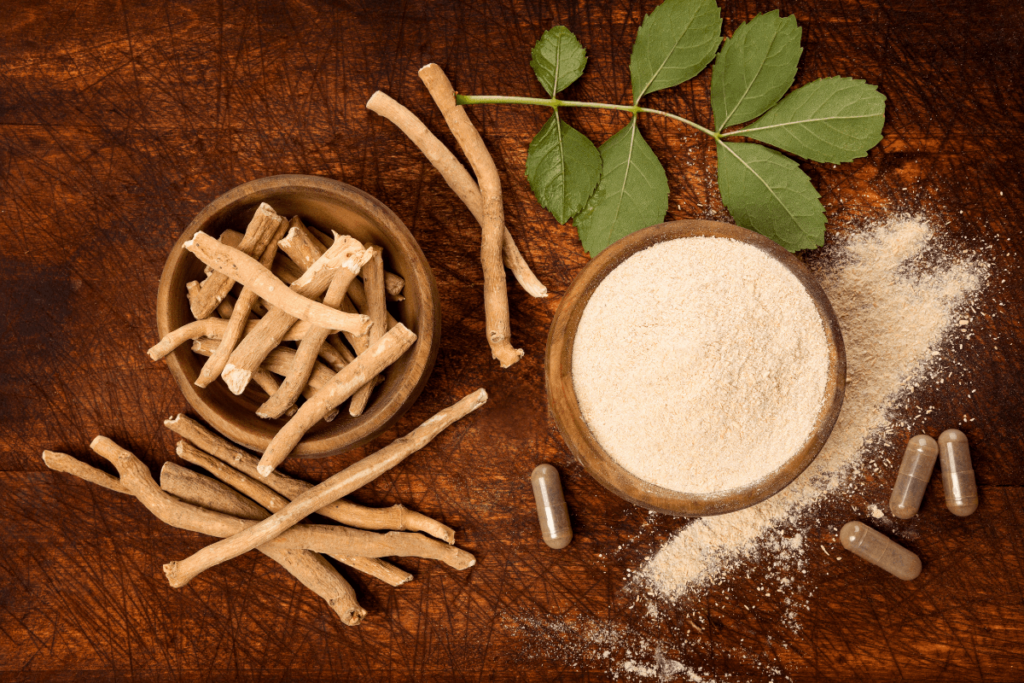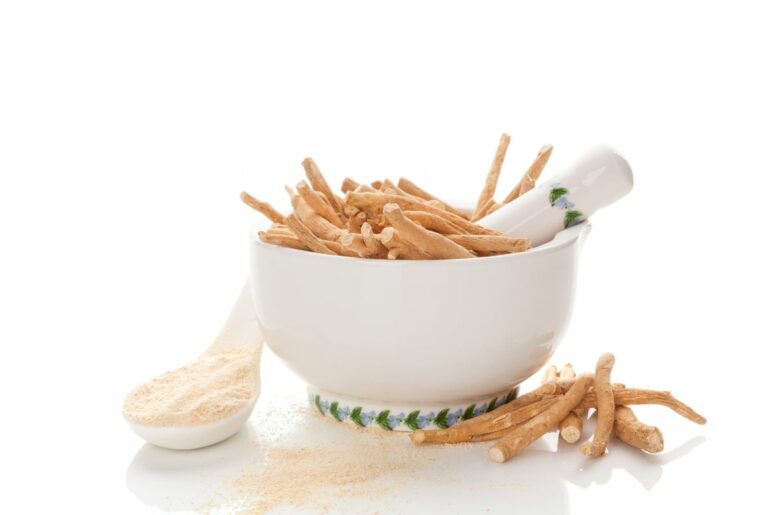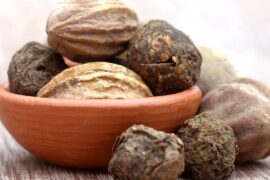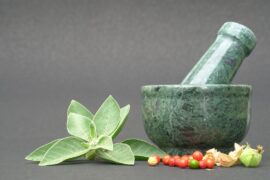Ashwagandha, an ancient herb with a remarkable history, has been highly revered for its versatile healing properties. This miraculous plant, with its unique name meaning “like a horse,” has long been a cornerstone of Ayurveda – a holistic system of medicine originating in India thousands of years ago. As we explore the power of Ashwagandha for hair growth, we delve into the fascinating world of this traditional remedy and its potential to transform your tresses into lush and healthy manes.
Ashwagandha means “like a horse”
Definition and origin of ashwagandha

1. Ashwagandha means “like a horse”
Ashwagandha, an ancient herb with a remarkable history, has been highly revered for its versatile healing properties. This miraculous plant, with its unique name meaning “like a horse,” has long been a cornerstone of Ayurveda – a holistic system of medicine originating in India thousands of years ago. As we explore the power of Ashwagandha for hair growth, we delve into the fascinating world of this traditional remedy and its potential to transform your tresses into lush and healthy manes.
The word “ashwagandha” is derived from two Sanskrit terms: “ashwa,” meaning horse, and “gandha,” referring to the smell of its root. This unique name is a testament to its ability to provide vigor and strength, much like a horse.
Traditionally, Ayurvedic practitioners have utilized ashwagandha as a general tonic to boost energy and reduce stress. Today, this herb continues to captivate the attention of scientists and health enthusiasts alike, with numerous studies exploring its potential benefits in various areas of health and wellness.
Join us in uncovering the secrets of this potent herb and its incredible ability to support hair growth as we embark on a journey through ancient wisdom and modern science. Let the power of Ashwagandha guide you towards a radiant and lustrous mane that reflects your inner strength and vitality.
2. Ancient use of Ashwagandha in Ayurveda
Ashwagandha, scientifically known as Withania Somnifera, is a potent plant that has been an integral part of Ayurveda, the ancient system of Indian medicine, for centuries. Its therapeutic benefits range from rejuvenating properties to potential anticancer effects, solidifying its status as one of the flagship herbs of Ayurveda.
In Ayurvedic scriptures, Ashwagandha is praised for its therapeutic potential, with applications ranging from being an adaptogen helping the body to cope with stress to having aphrodisiac properties enhancing physical performance. It was also utilized in formulations to improve sleep quality, augment quality of life (QoL), and support sexual function.
Medicinal Properties and Pharmacological Activities
The medicinal properties of Ashwagandha have been validated by various studies, which are in line with the ancient wisdom of Ayurveda. Its use as an anti-cancer, anti-inflammatory, and immunomodulatory agent is well-documented. One compound, Withanone, has shown potential as an antiviral agent against SARS-CoV-2, underscoring the plant’s versatility. Ashwagandha also offers potential benefits in the field of dermatology, being recognized for its efficacy in facial skin care for photoaged adults.
Ashwagandha and Ayurvedic Formulations
Ashwagandha finds its place in various Ayurvedic formulations. It is used in single and compound formulations, with its usage details included in the Ayurvedic Pharmacopoeia of India. The text references two types of Nighantus (Ayurvedic materia medica), including Ashwagandha, signifying its importance in the rich tradition of Indian traditional medicine.
Benefits of Ashwagandha

Boosting immune function
1. Increased resistance to infections
2. Relief from allergies
The ancient practice of Ayurveda, with its roots in the rich cultural heritage of India, is a holistic and individualized approach to wellness, focusing on the balance of body, mind, and spirit.
In this time-honored tradition, Ashwagandha holds a special place, revered for its numerous benefits and ability to bring harmony to the various systems within our body.
As we embark on a journey into the world of Ayurveda and the power of Ashwagandha, let us delve into its remarkable capacity to boost immune function.
With its innate ability to enhance the body’s resilience, Ashwagandha’s immune-boosting properties have been treasured in Ayurvedic medicine for centuries. This ancient herb is known to increase infection resistance, fortifying the body’s defenses and shielding it from the onslaught of external pathogens.
In a world where our immune systems are constantly under attack, the protective qualities of Ashwagandha offer a natural, time-tested solution.
Furthermore, this powerful herb relieves allergies, a prevalent ailment in today’s society, where allergens abound.
By soothing the overreactive immune response, Ashwagandha helps to restore balance, alleviating the discomfort and distress caused by allergies.
The ancient wisdom of Ayurveda and the potent properties of Ashwagandha come together in perfect harmony, offering a natural and effective solution for those seeking relief from the perils of modern life.
As we continue to explore the ancient use of Ashwagandha in Ayurveda, let us marvel at the timeless wisdom of this holistic healing practice and appreciate the incredible benefits this extraordinary herb offers.
Related: Health Benefits of Amla Powder
Potential benefits for stress, anxiety, memory loss, and insomnia
In today’s fast-paced world, Stress, anxiety, memory loss, and insomnia are prevalent issues in today’s fast-paced world. Finding natural, effective ways to manage these challenges is of paramount interest to health-conscious individuals. Ashwagandha (Withania Somnifera) is a potent herb and revered plant in Ayurvedic medicine known for its adaptogenic properties, which help the body adapt and recover from internal and external stressors.
As we search for natural remedies to combat these modern-day disorders, we find solace in the time-honored wisdom of Ayurveda and the remarkable benefits of Ashwagandha.
This powerful adaptogenic herb has captured the interest of researchers and wellness enthusiasts alike, offering a myriad of potential health benefits.
Ashwagandha’s most renowned attribute is its ability to reduce stress and anxiety. The bioactive compounds in Ashwagandha, such as withanolides, are known for their anti-inflammatory properties and play a critical role in mitigating stress and anxiety. As an adaptogen, it helps the body cope with stress by modulating cortisol levels, the stress hormone, and supporting overall well-being. By providing a natural means to soothe the mind and calm the spirit, Ashwagandha has emerged as a beacon of hope for those grappling with the challenges of modern life.
The benefits of Ashwagandha extend beyond stress relief, as it also holds promise for enhancing cognitive function and combating memory loss. In a world where information constantly bombards us, staying sharp and focused is invaluable.
Ashwagandha may offer a natural solution to support mental clarity and preserve our precious memories.
Lastly, Ashwagandha may provide a gentle, natural path to a restful night’s sleep for those tormented by insomnia. By addressing the root causes of sleeplessness, such as stress and anxiety, this potent herb can pave the way for rejuvenating slumber, allowing the body and mind to heal and restore.
As we continue to explore the potential benefits of Ashwagandha for stress, anxiety, memory loss, and insomnia, let us embrace the ancient wisdom of Ayurveda and harness the power of this remarkable herb to cultivate balance, resilience, and vitality in our modern lives.
Connection to hair growth
Stress is a common culprit in hair loss and thinning, and since Ashwagandha is renowned for its ability to reduce stress, it could potentially support hair growth by alleviating stress-induced hair shedding. As the herb soothes the mind, it might simultaneously weave a protective shield around your precious locks.
Additionally, Ashwagandha possesses anti-inflammatory properties, which may help maintain a healthy scalp environment.
A well-nourished, inflammation-free scalp is the foundation for strong and luscious hair, allowing it to flourish like a verdant garden under the care of a skilled gardener.
While further research is needed to conclusively establish a direct link between Ashwagandha and hair growth, incorporating this ancient herb into your wellness routine could offer myriad health benefits that may indirectly contribute to the lustrous allure of your tresses.
Side Effects of Ashwagandha
While the Ayurvedic herb Ashwagandha, known as Indian ginseng or winter cherry, is praised for its numerous health benefits, it’s important to understand its potential side effects. Generally recognized as safe when taken orally for up to three months, misuse or extended use may lead to undesired effects.
Overview of potential side effects
Large doses of Ashwagandha can cause digestive issues, such as upset stomach or diarrhea, and in rare cases, may lead to liver problems. Therefore, following the recommended dosage guidelines, typically 150mg to 1000mg, is advisable to ensure its safe use.
Precautions and contraindications
Pregnant individuals should avoid Ashwagandha due to the risk of miscarriage. While it may offer potential benefits like increased milk production, anti-inflammatory effects, and enhanced immune system activity during lactation, the lack of extensive research leaves the safety of Ashwagandha use during breastfeeding unclear.
Even though Ashwagandha’s adaptogenic properties could be beneficial for managing postpartum fatigue and stress, seeking medical advice before using this supplement during pregnancy or while nursing is advisable due to limited available research.
Precautions and contraindications
Ashwagandha may interact with certain medications, including those for blood sugar, blood pressure, immune suppression, and particularly those related to sedation or central nervous system depression. Individuals with specific health conditions, like stomach ulcers and liver disease, are advised to consult their healthcare provider before using Ashwagandha to prevent potential adverse interactions or exacerbation of existing health issues.
It is important to understand how these interactions occur and their effects on the body.
Ashwagandha can increase the effects of some drugs through pharmacodynamic synergism. This synergy means it can enhance the pharmacological effects of these drugs, possibly leading to increased sedation or central nervous system (CNS) depression. Here are the specific medications with which Ashwagandha can interact, grouped by their type:
Barbiturates
Barbiturates are drugs that act as central nervous system depressants and can therefore produce a wide spectrum of effects, from mild sedation to total anesthesia. Ashwagandha may increase the effects of these medications:
- Amobarbital
- Butabarbital
- Butalbital
- Pentobarbital
- Phenobarbital
- Primidone
- Secobarbital
Antihistamines
Antihistamines treat allergic health conditions by blocking the action of the chemical histamine in the body. Ashwagandha may increase the effects of these medications:
- Azelastine
- Brompheniramine
- Carbinoxamine
- Chlorpheniramine
- Clemastine
- Cyclizine
- Cyproheptadine
- Dexchlorpheniramine
- Dimenhydrinate
- Doxylamine
- Hydroxyzine
- Triprolidine
Miscellaneous CNS Depressants
These are other medications that can depress the central nervous system. They are grouped because they don’t fit neatly into other drug classes. Ashwagandha may increase the effects of these medications:
- Chloral Hydrate
- Cinnarizine
- Dexmedetomidine
- Triclofos
- Promethazine
Related: Exploring the Wonders of Fenugreek: Your Ultimate Herb Guide
Uses of Ashwagandha for Hair Growth
Traditional uses in Ayurveda
Ashwagandha, also known as Indian ginseng, is a revered herb in Ayurveda with a history of use spanning millennia. It is traditionally used to balance the doshas – the vital energies in the body according to Ayurveda, which, if imbalanced, can lead to various health issues, including hair problems. Its use in hair care involves preventing hair loss due to stress and hormonal imbalances, strengthening the hair, nourishing the scalp and hair, conditioning the hair, and controlling scalp irritation. It’s also used to reverse premature greying. Ashwagandha’s traditional applications are owed to its rich chemical composition, which includes beneficial alkaloids and steroidal lactones, known for their adaptogenic, anti-stress, and anti-inflammatory properties.
Modern Applications
Supplement
Modern formulations have included Ashwagandha in various supplements that can be consumed orally. These supplements may come in the form of capsules, tablets, or powders and are typically used to help balance hormones and reduce stress, which can indirectly aid in improving hair health and preventing hair loss. However, as with all supplements, caution is needed regarding dosages and potential side effects, and it is advisable to consult with a healthcare provider before starting any new supplement regimen.
Topical solutions
Topical applications of Ashwagandha are also available and widely used in modern hair care. Various Ayurvedic hair care products, including shampoos, conditioners, and hair masks, contain Ashwagandha due to its numerous benefits for hair health. When applied directly to the scalp and hair, Ashwagandha can help nourish the hair follicles, strengthen the hair, and reduce scalp irritation. It’s also used to reverse premature greying.
As of 2023, the use of Ashwagandha in hair care products is gaining popularity, driven by increasing consumer demand for natural, clinically-proven cosmetic ingredients. Beauty brands like Forest Essentials and Goop Beauty have included Ashwagandha as key ingredient in their product lines. Furthermore, a leading supplier of Ashwagandha, Ixoreal Biomed, which holds 65% of the market share, supplies its Ashwagandha extract, KSM-66, to over 1,600 brands. A study has shown that a hair serum containing Ashwagandha can improve hair density and mitigate hair loss.
One brand in particular, Henna Sooq, has Ashwagandha-infused hair oil in its product lineup. Some supplements mentioned, including Ancient Nutrition Organic Ashwagandha, Qualia Resilience, and Goli Ashwagandha Gummies, use Ashwagandha for its adaptogenic and anti-stress properties. Still, these are not specific hair care products.
Key Takeaways
Summary of the benefits, side effects, and uses of ashwagandha for hair growth:
- The potential of Ashwagandha (Withania Somnifera) to enhance hair growth should not be underestimated. This conclusion is drawn from the extensive benefits Ashwagandha provides, as suggested by various studies. Although the studies’ focus is not primarily on hair growth, the herb’s positive impact on overall health, stress reduction, and well-being could indirectly contribute to better hair health and growth.
- Ashwagandha’s adaptogenic properties and potential to enhance physical performance has been well-documented. Its positive effects on muscle strength and cardiorespiratory fitness could, in theory, improve circulation to the scalp and thereby stimulate hair follicles. Additionally, its supplementation has shown improvements in sleep quality and reductions in anxiety levels, which are vital factors for maintaining overall health, including hair.
- Furthermore, Ashwagandha has displayed potential therapeutic effects on a myriad of health conditions, such as neurological disorders, inflammation, immunity, and sleep disorders. These factors play a significant role in overall health, which, when optimized, may lead to healthier hair growth.
- Finally, the herb has demonstrated potential neuroprotective effects in brain disorders. While this may not directly impact hair growth, it’s important to note that a well-functioning, healthy body is more likely to support hair growth, indirectly benefiting from these neuroprotective effects.
It’s crucial to note that while Ashwagandha’s numerous health benefits and potential effects on hair growth are promising, more targeted studies are needed to establish and fully understand its role in hair care.
Also, it’s important to consult with healthcare professionals before starting any new supplementation regimen. Individual results may vary, and the most effective hair care routines incorporate a holistic approach to health and wellness.









